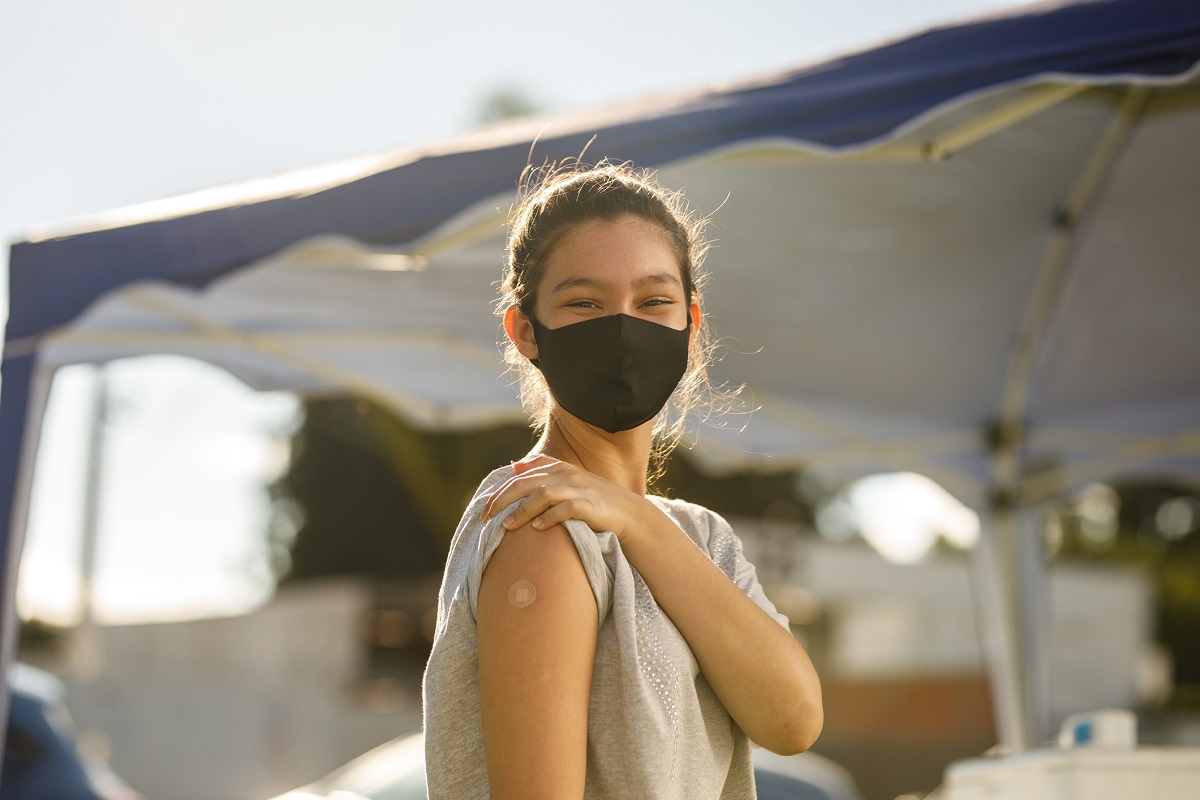The Medical Minute: Vaccinating kids against COVID-19 protects them, their communities

Approval of a COVID-19 vaccination for children ages 12 and up is a shot in the arm in the battle against the virus, but it’s only as valuable as the number of parents who use it.
The U.S. Centers for Disease Control and Prevention has approved the Pfizer BioNTech vaccine for emergency use for this age group to be given in the same dose and at the same time interval as adults.
As with anything that affects children, parents understandably want to know whether it’s safe.
Dr. Jessica Ericson, infectious diseases pediatrician at Penn State Health Children’s Hospital, answers with an emphatic yes.
“The vaccines went through rigorous studies and were found to be safe,” she said. “I know people are worried about long-term effects since the vaccines have been in trials for only nine months to a year, but the majority of side effects happen in the first few days to three months, and we’re well past that now.”
Aside from comprehensive studies with adults, a vaccine trial with teenagers did not show any adverse reactions or complications, and the vaccine was shown to be 100 percent effective in children ages 12 to 15 – a feat not achieved in adults.
“In the study group of 1,000 teenagers who had the vaccine, none got COVID-19 compared to 16 teens in the placebo group of 1,000 who got COVID,” Ericson said. “That’s pretty amazing.”
Possible side effects are the same for children as adults – low-grade fever, body aches, fatigue and arm pain at the injection site. Persistent symptoms, such as a fever of 102 degrees or higher, that last for more than two days warrant a call to the pediatrician, she added.
Although there have been a dozen or so reports of myocarditis – heart inflammation – after children got the vaccine, it’s not known if those incidents are directly related to the vaccine, or just a coincidence, Ericson said.
Protecting yourself and others
Parents also may hesitate to get their children vaccinated because they’ve heard that kids don’t get as sick with COVID-19 or they can’t spread it as easily.
“It is true that children are less likely to get severely ill from COVID-19 or die, but even healthy kids can get very sick and end up in the hospital,” Ericson said. “The pandemic isn’t over, so it’s really a choice between getting natural COVID or getting the vaccine, and we know the risks of having a serious reaction to the vaccine are far smaller than the risk of serious illness from COVID.”
There are other perks to being vaccinated, she said. Kids likely won’t have to quarantine if they are exposed to the virus, which means they won’t have to stop seeing friends, take a break from a sports team or avoid seeing grandparents. Research is ongoing that may open the vaccine to children starting at age 6 months, Ericson said.
“Getting vaccinated is the best and quickest way to resume ‘normal’ life,” Ericson said. The vaccine is safe for kids with allergies or chronic health conditions, and it’s safely given alongside other childhood immunizations, she added.
Talking with children about the vaccine is a great opportunity to teach them how to be proactive in their own health care, she said. “Part of our job as parents and pediatricians is to prepare young people to take control of their health, so educating them on the benefits of the vaccine is a wise thing,” she said.
Debunk myths surrounding the vaccine – such as false assertions that it can cause infertility or alters genetic makeup – and stress that vaccination is a positive, welcome tool to combat a serious health threat, she said.
Avoid the ‘rewind’ button
One of the best overall reasons for vaccinating children is that it will prevent potentially dangerous variants of the virus from replicating, Ericson said.
“Vaccination is our opportunity to make sure a variant doesn’t develop for which the vaccine doesn’t work,” Ericson said. “This is our chance to use all the things we’ve learned over the past year to stop the pandemic and move forward.”
Related content:
- The Medical Minute: Mammograms and the COVID-19 vaccine
- The Medical Minute: How the body responds to the COVID-19 vaccine
The Medical Minute is a weekly health news feature produced by Penn State Health. Articles feature the expertise of faculty, physicians and staff, and are designed to offer timely, relevant health information of interest to a broad audience.
If you're having trouble accessing this content, or would like it in another format, please email Penn State Health Marketing & Communications.
